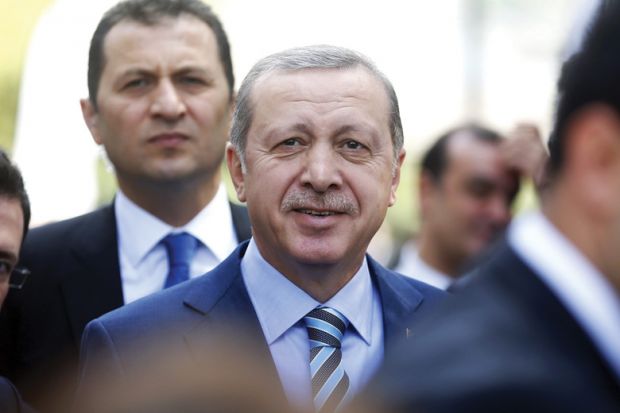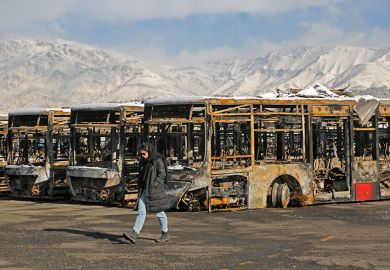Hundreds of academics have signed a letter hitting out at the treatment of academics in Turkey after a British scholar was deported from the country despite having lived there for 25 years.
Chris Stephenson, a lecturer in computer science at Bilgi University in Istanbul, was flown back to the UK on 16 March just a day after his arrest outside a courthouse where he was supporting three fellow academics accused of “spreading terrorist propaganda”. He has since been told that he can return to the country.
The defendants were among more than 1,000 Turkish academics who signed a letter in January criticising government military action against Kurdish rebels in south-east Turkey.
A total of 1,406 academics from 62 countries have now signed a further letter, published in this week’s Times Higher Education, calling on the international community to urge Turkey’s government to “stop the witch-hunt” against dissident academics, “respect academic freedom, free the arrested academics, and reinstate all the academics suspended or expelled during the persecution campaign with compensation”.
Almost 800 academics who signed the Academics for Peace letter in January have faced action either by their university, state authorities or both, the letter adds. Thirty-eight staff have been dismissed, 29 suspended and 531 face an administrative investigation, claims the letter in this week’s THE.
The arrests, dismissals and deportations are seen as part of a crackdown on academics and journalists critical of Turkey’s president, Recep Tayyip Erdoğan.
President Erdoğan said last week that he wants to “redefine” Turkish law to cover those who support terrorism, including academics and journalists. But critics claim that this is an attempt to silence voices critical of the long-standing political leader.
Mr Stephenson, who lists himself on Twitter as editor of the marx-21 website, was accused of handing out propaganda for the outlawed Kurdistan Workers’ Party (PKK).
But he claims that security guards simply found in his bag leaflets that were issued by a Kurdish political party, which has numerous MPs in parliament, inviting people to a Kurdish New Year’s festival.
A reference to Kurdish self-determination and a small picture of a barricade were deemed to constitute propaganda, said Mr Stephenson. Before boarding a flight at Istanbul airport, Mr Stephenson told Associated Press that there had been “no offence, no trial, just an administrative decision to deport me after 25 years’ of residency in Turkey”.
On 18 March, Mr Stephenson, who has a Turkish wife and a 13-year-old daughter, told the BBC World Service that he was being allowed to travel back to the country.
His lawyer described his treatment as “very scary and wrong”, while the three academics supported by Mr Stephenson – Esra Mungan of Boğaziçi University, Kıvanç Ersoy of Mimar Sinan Fine Arts University, and Muzaffer Kaya, formerly of Nişantaşı University – remain in custody.
POSTSCRIPT:
Print headline: 'Witch-hunt' in Turkey must end
Register to continue
Why register?
- Registration is free and only takes a moment
- Once registered, you can read 3 articles a month
- Sign up for our newsletter
Subscribe
Or subscribe for unlimited access to:
- Unlimited access to news, views, insights & reviews
- Digital editions
- Digital access to THE’s university and college rankings analysis
Already registered or a current subscriber?




